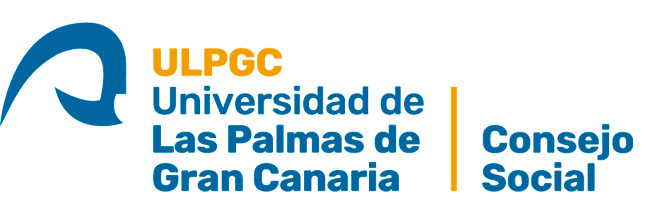The document has been coordinated by the head of science of the Organisation for the Economic and Fiscal Regime of the Canary Islands [la Cátedra del Régimen Económico y Fiscal], Salvador Miranda Calderín, and the financial economics and accounting lecturer, José Andrés Dorta Velázquez.
The document is comprised of four sections: The Economic Repercussions of the Crisis and Sources of Financing; The Role of the University; Tax Measures and the Tailoring of the REF [the Economic and Fiscal Regime of the Canary Islands]; and The REF in the Social and Economic Reconstruction.
The ULPGC Organisation for the Economic and Fiscal Regime of the Canary Islands (REF), which was launched in 2014 by the University’s Social Council and the Gran Canarian Society of Entrepreneurs [Círculo de Empresarios de Gran Canaria], has recently published a document entitled “The REF in the face of the Coronavirus Economic and Social Crisis” [El REF ante la Crisis Económica y Social del Coronavirus (only in Spanish)], which brings together a series of reflections and recommendations regarding the extraordinary situation generated by SARS-CoV-2 (Covid-19).
The document has been coordinated by the head of science of the Organisation for the Economic and Fiscal Regime of the Canary Islands, Salvador Miranda Calderín, and the financial economics and accounting lecturer, José Andrés Dorta Velázquez. In their introduction they highlight that “the Organisation for the Economic and Fiscal Regime of the Canary Islands predicts the future, while not concealing from the members of its scientific committee or from those invited to collaborate in this report that the economic repercussions are and will be very negative for the welfare society”, adding that this global healthcare crisis will mean “a paradigm shift in many areas and that it will bring with it the mutually agreed reviewing of a set of regulations and rigid bureaucracies, which due to their inefficacy have not been able to protect society during these dramatic times”.
The following experts collaborated on the report: Antonio Viñuela Llanos (Garrigues Abogados law firm), Arturo Melián González (the Department of Economics and Business Management, ULPGC), Sonia Mauricio Subirana (the Department of Basic Legal Sciences, ULPGC), Francisco Hernández González (lawyer and lecturer in finance and tax law), Enrique Lang Lenton Bonny (the Department of Basic Legal Sciences, ULPGC), Murli Kessomal Kaknani (Deloitte), María Estrella Martín Domínguez (Atrium Asesores Tributarios tax advisors), Orlando Luján Mascareño (Luján Asesores consultants), and Adriana Fabiola Martín Cáceres (lecturer in finance and tax law, ULL), in addition to the coordinators Salvador Miranda and José Andrés Dorta.
The 82 page publication is divided into four sections which deal with: The Economic Repercussions of the Crisis and Sources of Financing (Section 1); The Role of the University (Section 2); Tax Measures and the Tailoring of the REF (Section 3); and The REF in the Social and Economic Reconstruction (Section 4).
In the first section, the experts analyse the impact of the pandemic on the economies of Spain and the Canary Islands, the measures adopted by the government in order to maintain the liquidity of businesses, and the effects of the crisis on public finances and sources for their financing, focusing particularly on the Canary Islands regional government. In the second section, which deals with the role of the University, the authors bring together a series of economic measures for the Canary Islands’ universities, in accordance with the REF regulations, among which can be highlighted the petition for additional investment in research, especially biomedical research, on the part of the state and regional governments; the strengthening of the workforce at the two public universities in the Canary Islands; the reinforcement of grants and financial aid provided by the Canary Island and Spanish governments in order to guarantee university education; and the increase in the number of places available on healthcare degrees.
The third section is dedicated to tax measures and the tailoring of the REF, including five chapters on REF tax holidays and tax incentives; analysis and measures concerning tax incentives for investment; the use of the RIC [Canary Island Investment Reserve] in the creation of employment; the requirements for employment and investment in the Canary Islands Special Zone; and a comparative analysis, alongside some observations, regarding the tax measures adopted. In the final section, regarding the role of the REF in the social and economic reconstruction, the authors have included a series of reflections and conclude the document by offering a series of conclusions for each of the sections outlined.
The objective of the ULPGC Organisation for the Economic and Fiscal Regime of the Canary Islands, the creation of which in 2014 was driven by the ULPGC Social Council and the Gran Canarian Society of Entrepreneurs, is to study the Economic and Fiscal Regime of the Canary Islands and to disseminate information regarding the regime. The work of the organisation is targeted at economic specialists, but also at the general public, with the aim of communicating the incentive effects which benefit them.


